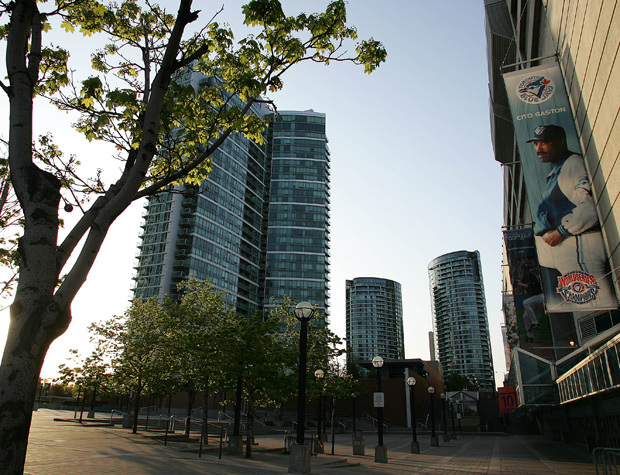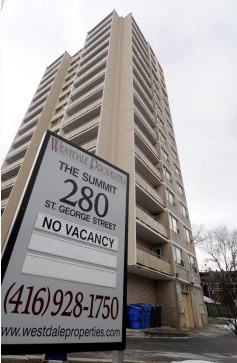PETER MITHAM/FRANK O’BRIEN
Other
For perhaps the first time, Metro Vancouver residential real estate investors could be looking enviously next year at Calgary, Saskatoon and even Fort St. John as a careening market claims victims on the West Coast. But, while Vancouver’s housing market is dented, there is scant evidence of a crash.
A mid-year change in mortgage rules had pundits predicting the bursting of the B.C. housing bubble, but that forecast depended on two things: the existence of a housing bubble and a willingness among owners to accept significant losses on real estate.
And neither, according to Cameron Muir of the BC Real Estate Association (BCREA), are indicated by available data on the market.
“A significant decline usually takes a macro-economic shock, and we just don’t see that,” Muir told a gathering of media in November.
“We don’t see a recession on the horizon. We don’t see interest rates going up any time soon. So what is going to cause household financial calamity in Vancouver, to the point at which people are going to accept losing 25 per cent or whatever number you want to pick out of a hat?”
While job prospects for B.C. darkened in the closing months of the year, shedding 10,900 jobs in October, total employment stands at 2,317,400 – well above its pre-recession peak of 2,275,700. The recent gains have been at the expense of part-time jobs, indicating stronger household finances.
“Down the road we’re going to see some spinoffs from that in the housing market,” Muir said.
While the province is expected to lose 3,500 residents to other provinces – primarily Alberta – in 2012, annual net migration will stay steady at approximately 40,000 through 2013.
“That’s helped sustain our population growth, even during periods of downturns in the business cycle.”
Moreover, interest rates are at a 30-year low. With the Bank of Canada signalling no rate increases until 2014, Muir sees few disincentives to purchases.
Despite the dramatic 21.9 per cent drop in unit sales in Vancouver through October 2012 versus the same period of 2011, BCREA estimates call for 29,800 unit sales in 2013, a tally close to the 15-year average. The province will see an estimated 74,900 unit sales, up from approximately 69,200 units this year.
The activity in Vancouver will be spurred by downward pressure on prices, with buyers snapping up more affordable units. Provincially, demand will boost the average sale price as smaller markets continue to recover from the recession of 2009.
BCREA forecasts home prices in the province to average $522,000 in 2013, up from $518,600 this year. In Vancouver, the average price will drop from $734,000 to $720,000.
If cheap debt continues to fuel home sales, however, it has also supported aggressive pricing on building sites. But with downward pressure on sale prices in Metro Vancouver, many developers are starting to balk.
“It is slowing, there’s no question about it,” Andrew Tong, senior vice-president, investments, with Concert Properties Ltd., said during a recent panel discussion hosted by commercial real estate association NAIOP.
The cooling trend is making lenders more cautious, Tong said, precipitating tighter requirements for projects and pushing down pricing on development sites.
“Lenders are going to be tougher on everyone. I would be very careful,” he said. “We think that land pricing is still aggressive; vendors are not realistic. … [Vendors] in marginal locations will have the realization that their lands are not worth as much as they were a year ago.”
The best sites, in Tong’s opinion, are those near transit and backed by established developers. Or, as Avison Young principal Bob Levine remarked during the same discussion: “Commodity land is off the table.”
Developers can’t expect a project to sell just because it’s being built at a decent price point. Indeed, the real battleground is less price than amenities.
Data crunched by Michael Ferreira, principal of Vancouver market research firm Urban Analytics Inc., suggests that prices have already factored in a lot of the economic risks.
Alto, which Anthem Properties Group launched in 2007, was priced at $725 a square foot. But a more recent offering, 999 Seymour by the Townline Group, was just $730 a square foot. The “great recession” fell in-between, but prices have held the course.
“We’re not in crash mode,” Ferreira said.
Project financing
That is also the feeling of Jason Daviss, a principal with of Gryphon House of Finance in Vancouver, which handles between $200 million and $300 million in residential development and investment financing annually. Daviss expects the residential market to remain subdued but relatively stable – “even boring” – into 2013 even though some pundits see an oversupply of new strata units scaring the market.
“For the most part Vancouver developers are very sophisticated and savvy,” Daviss said, adding that “they are self-regulating” and won’t proceed with projects if numbers don’t pencil or presales don’t meet their expectations or those of their lender.
Lenders are more cautious on land development today, he said, though top brand developers should have no problem arranging loans for land purchases or construction.
“For well-conceived projects with strong sponsorship, financing continues to be readily available,” provided the land is already zoned or designated within an existing land-use plan and there are no other barriers to “a straight path to the market.”
“It is the Hail Mary, speculative-type projects that will run into resistance from lenders,” Daviss explained.
He said East Vancouver, Burnaby and parts of the Tri-Cities along the Evergreen Line should remain strong next year in a new home market now dominated by multi-family units, but that the once-market-leading West Side and Richmond markets “have seen some pullback and will likely continue reverting toward the mean” over the next year as Asian investment flattens.
Daviss added that it would be difficult to find residential land zoned for multi-family housing at less than $1 million an acre anywhere in Metro Vancouver.
There are 26 large condominium projects proposed for Metro Vancouver, but some will not proceed, suggests Andrew Evans, co-author of Deloitte’s inaugural Crane Survey on the Greater Vancouver real estate scene, released this fall.
“The larger well-financed developers will likely proceed with long buildouts, but some of the smaller developers may put projects on hold,” Evans said. A key reason is that lenders are increasingly demanding proof of up to 50 per cent pre-sales before condo projects will be financed.
Deloitte believes the hottest new condo construction is slated for South East False Creek, where 1,500 units have already been built, 1,300 are under construction, 450 are in pre-sale mode and 1,350 more are planned.
Condo investments
The top target for investors has been condominiums and they still account for more than 30 per cent of condo owners in the Metro region, according to Canada Mortgage and Housing Corp. But new mortgage rules that restrict down payments to a minimum of 20 per cent, higher prices and a slowdown in equity appreciation have made condos less attractive to speculators.
Enter the tiny condo, an attempt by developers to keep prices at the sub-$200,000 level.
The best example is Tien Sher’s Balance, a 56-unit low-rise condo project in Surrey, where the smallest unit is just 290 square feet (the smallest ever in B.C.).
Prices at the Balance will start at $109,900, which means mortgage payments could be as low as $600. Sixty per cent of the suites are 305 square feet or smaller, and the largest is a one-bedroom at 653 square feet. All micro suites will contain five stainless-steel appliances, hardwood floors and a balcony. Sales start in January.
While the Balance may be attractive to investors, Tien Sher president Charan Sethi believes that first-time buyers – “young professionals, retail employees, single parents” – will be the main buyers.
“Real estate prices in the Lower Mainland are among the richest in North America,” Sethi, whose company has built more than 420 homes in the Surrey Central area where the Balance will be located, said.
“In cities like New York, Tokyo and Paris they found a solution: build smaller but build closer to amenities,” he said. “We wanted to build suites that renters could afford to purchase, today. With suites starting at $109,900, if you can afford the $6,000 down payment and you make a salary of $17 per hour, we have a home for you.”
Reliance Properties, which was the first to introduce tiny apartments – in that case rentals – to downtown Vancouver, plans to build at least 500 micro condos, mostly in East Vancouver, over the next few years, says company president Jon Stovell. A trial run is completing in Victoria, where Reliance has converted an old hotel into a 100-unit building of 300-square-foot condos that will sell for $120,000 when launched next spring.
Apartment buildings
For larger landlords, the multi-family market is also shrinking due to bloated prices and skinny returns. Seventy-four apartment buildings sold in the first nine months in Metro Vancouver at a record average price “per door” of $274,000 in the city (based on 36 building sales) and $170,070 in suburban markets (where 38 buildings sold). These prices are up 20 per cent and 14 per cent, respectively, from a year ago.
Western Investor December 2012



